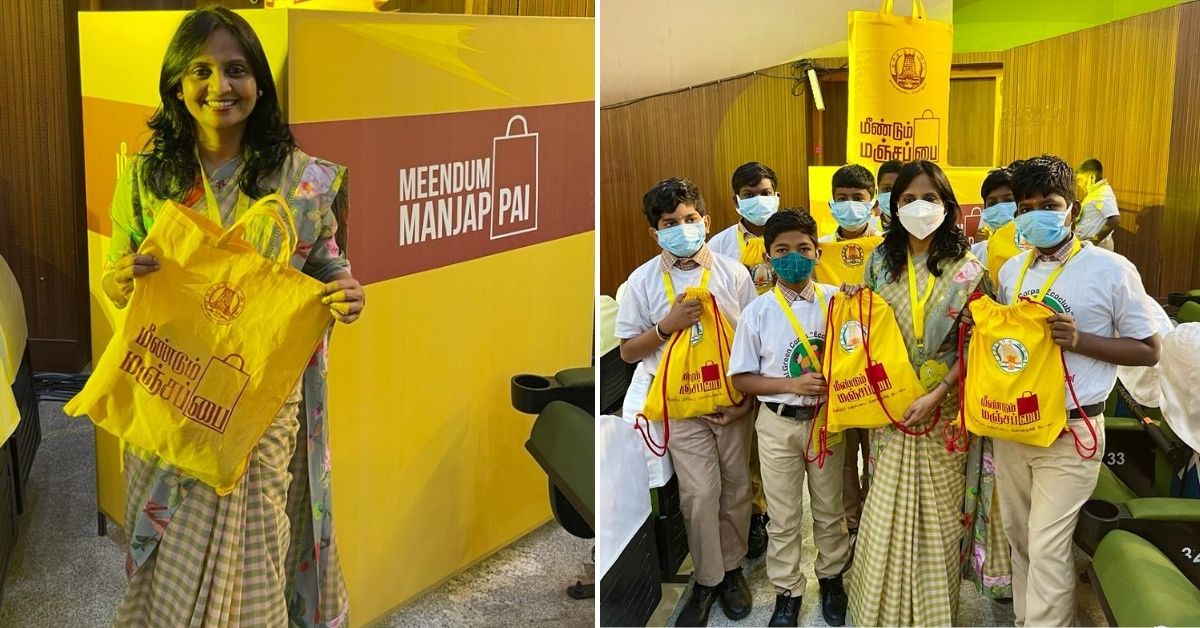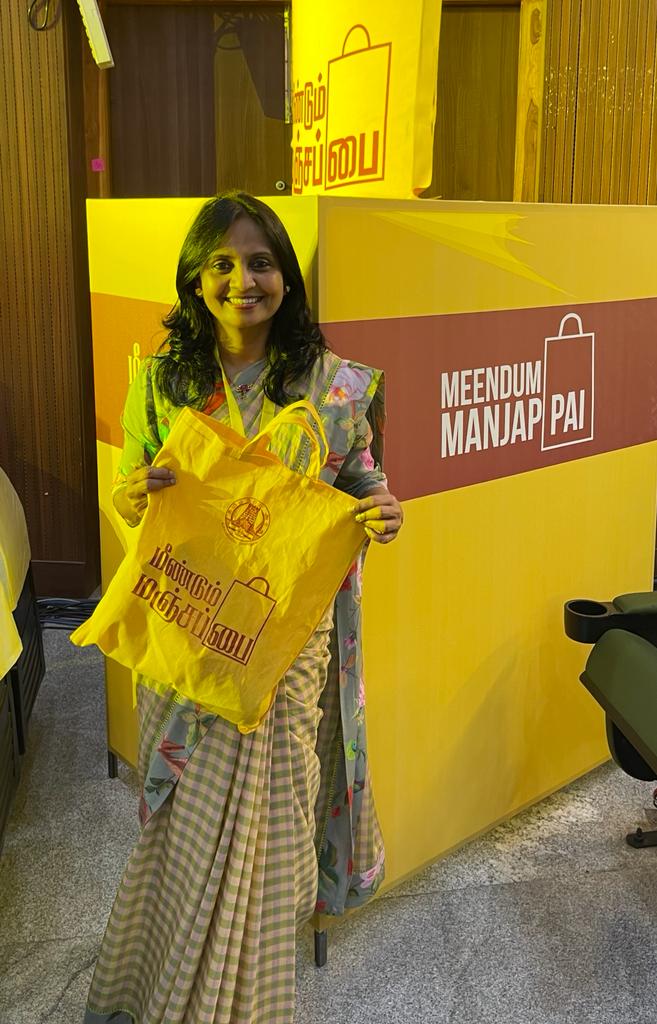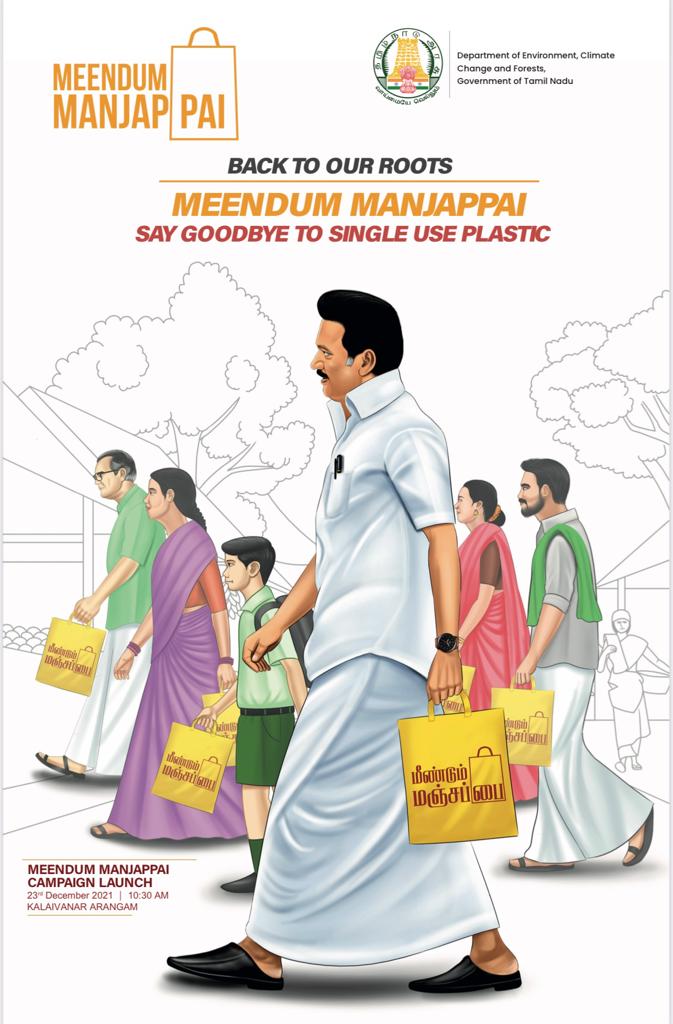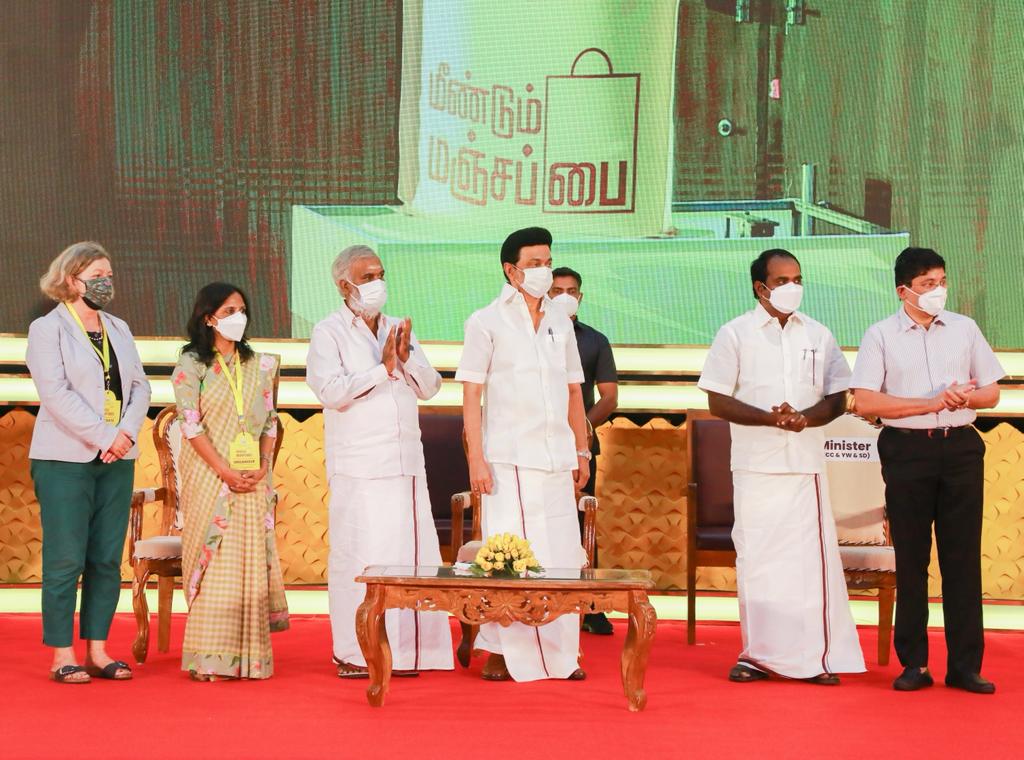Exclusive: IAS Officer Revives Tamil Nadu’s Eco-Friendly ‘Manjapai’ Bags
Meendum Manjapai: IAS officer Supriya Sahu’s new eco-friendly initiative is an ode and bid to revive Tamil Nadu's ancient practice of using yellow cloth bags instead of plastic.

The slogan Meendum Manjapai Vizhipunarvu Iyakkam (Back To Yellow Cloth Bags Awareness Campaign) is gathering a lot of momentum in Tamil Nadu, thanks to Indian Administrative Service (IAS) officer Supriya Sahu and her team.
The campaign calls for a return to the age-old custom of Tamilians carrying around a cloth bag (typically yellow in colour) wherever they went.
It aims to make the manjapai ‘retro-cool’ and bring in a sense of nostalgia, thereby inspiring people to discard single-use plastic carry bags.

In 2019, a total of 14 plastic items, including one-time use of plastic bags and polythene covers, were banned in Tamil Nadu. The state’s environment department had also issued orders for surprise checks to be conducted to ensure that the ban was being followed through.
Speaking to The Better India, Supriya Sahu, Environment and Forest Department Secretary says, “While the ban has been in place, we did find errant manufacturers and vendors falling back to using polythene covers. In order to put an end to that, the idea of returning to our roots and using that cloth bag was revived.”
While regulations and laws help to some extent, at the end of the day, real success for any cause comes only because the people make it their own. Supriya mentions this in an example of how in the Nilgiris, plastics have all but been banned successfully for over 20 years now, not because of legislation, but because it was a people’s campaign. “You need two hands to clap – both the people as well as the regulations have to support each other and be in sync to achieve transformational change,” she notes.
She adds, “The whole idea of this campaign is to motivate people to take up this cause willingly, consciously, and voluntarily – as only this would ensure the success of the campaign.”

Supriya says she has always been a fan of the manjapai, and saw it being used by her grandparents. Over time, this has been replaced with the convenience that plastic offered, which made the erstwhile ubiquitous manjapai almost extinct from society.
“At the launch of this campaign, we had so many people telling us about their memories of the manjapai (yellow bag). They recalled their grandparents diligently reaching for it every time they stepped out of the house. They would return, fold it and keep it away, and use it again and again. This would continue until that manjapai was tattered and ready to be retired.”
It is rather interesting to note how Manjapai got its name. Named after their yellow colour, these cloth bags were dipped in turmeric, which was used as a disinfectant.
“What is also heartening is that this campaign has been approved by the Chief Minister, who is also keen to see the transformation succeed,” she adds. While regulations and legislations are in place, Supriya has now put in motion a plan to bring this to fruition.
They have set up a 30-member team which works with various agencies to aggregate plastic wastes. Over the past 12 months, over 1,700 tons of disposable plastic waste has been collected, she says. But she notes, “While we have succeeded in collecting the waste, the key issue is that the plastics are still being sourced from somewhere.”
She says she aims to fight this at the district, panchayat and village levels to increase awareness, so that there is no demand for plastics in the state – which she believes will naturally take care of the supply problem.

Supriya is also working very closely with school children, with whom about 3,000 eco-clubs have been established. “We see them as the torchbearers for the future,” she says.
In conclusion, Supriya says, “The responsibility is upon us today. We don’t want to leave behind a polluted planet for future generations, and we should do everything in our power to tackle this issue.”
Manjapai is, at the end of the day, a visual and powerful metaphor that establishes an instant connection with the audience. It is about going back to our roots, and to sustainable practices.
(Edited by Divya Sethu)
If you found our stories insightful, informative, or even just enjoyable, we invite you to consider making a voluntary payment to support the work we do at The Better India. Your contribution helps us continue producing quality content that educates, inspires, and drives positive change.
Choose one of the payment options below for your contribution-
By paying for the stories you value, you directly contribute to sustaining our efforts focused on making a difference in the world. Together, let's ensure that impactful stories continue to be told and shared, enriching lives and communities alike.
Thank you for your support. Here are some frequently asked questions you might find helpful to know why you are contributing?













